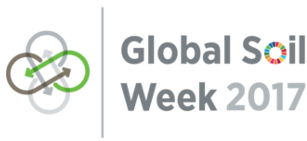
- This event has passed.
Jump-starting the SDG’s in Germany: natural resources and sustainable consumption and production
2 May 2016 - 4 May 2016
Event Navigation
The German Federal Ministry of Food and Agriculture (BMEL), the Institute for Advanced Sustainability Studies e.V. (IASS), and as co-hosts the Stockholm Environment Institute (SEI), the Institute for Sustainable Development and International Relations (IDDRI), Germanwatch e.V. and the World Centre for Sustainable Development (RIO+Centre), discuss the challenges of implementing the Sustainable Development Goals (SDGs) in Germany. The thematic focus of the conference will be on natural resources and sustainable consumption and production.


Background: The adoption of the 2030 Agenda for Sustainable Development by UN Member States in September 2015 introduced ambitious and universal goals for sustainable development. In 2016 all countries face the task of implementing the SDGs at home, taking into account national circumstances and priorities, while maintaining the global level of ambition.
The conference will explore Germany’s responsibilities as a major consumer of natural resources in a globalized world. Accounting for today’s complex consumption and production patterns, national implementation of the SDGs must reach beyond borders. A promising step in this direction is a revitalized global partnership for sustainable development, as outlined in the SDGs. The conference assesses the potential role of partnerships for collaboration and mutual learning for sustainable development both within and outside Germany. Special attention is hereby given to the initiative of the Swedish government on ‘Implementing the 2030 Agenda for Sustainable Development, A Call to Action’, which represents a partnership of nine countries, including Germany. The initiative pledges to actively support the implementation of the 2030 Agenda and to promote the sharing of experiences and best practices. The work of the Independent Research Forum and similar initiatives aiming to provide strategies for an effective SDG implementation will also be discussed at the conference.
The 2030 Agenda emphasises that natural resources, like fertile soils, safe drinking water and healthy ecosystems, are an indispensable basis for sustainable development. A wide range of SDGs calls for serious efforts for securing these resources and using them more sustainable by changing consumption and production patterns. Integrated nexus-based approaches are widely regarded as a sensible approach to both analyse and govern complex natural resources.
![]()
